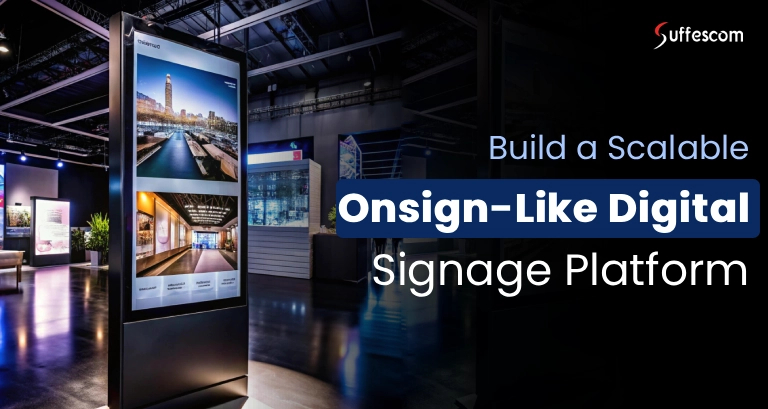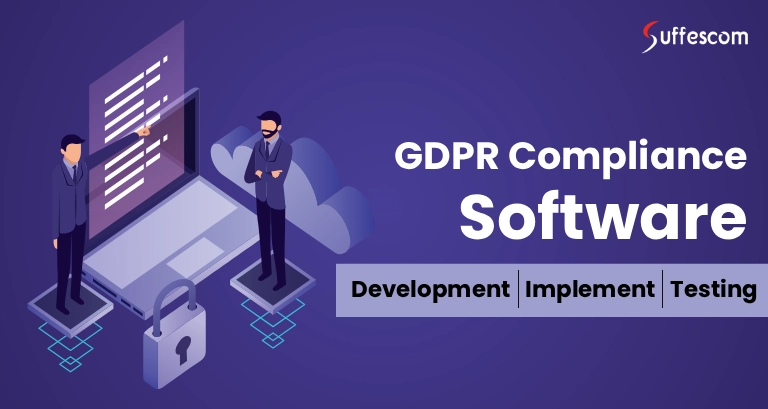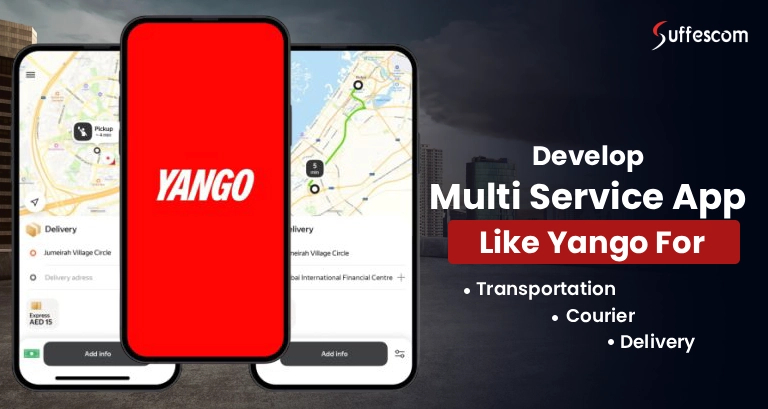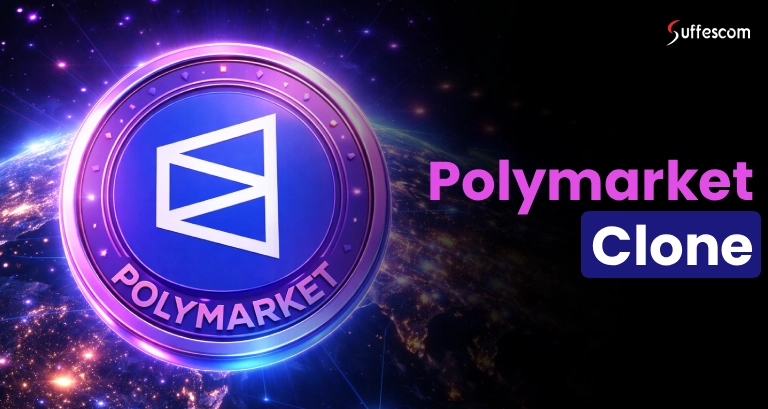Gold Tokenization Platform Development | Tokenization of Gold

Gold has always been about security. It’s the one asset people turn to when things feel shaky. However, owning physical gold comes with significant challenges. It’s expensive, it's a pain to store, and it's not exactly easy to trade.
This is where gold tokenization transforms the equation.
By taking physical gold and turning it into a digital token on a blockchain, we're not just digitizing an asset. We're solving all the old problems and creating a new, smarter way to invest.
With tokenization, investors no longer need large capital, private vaults, or specialized brokers. They only need a secure, well-designed gold tokenization platform. Let’s first understand why traditional gold investing struggles and how tokenization solves those problems.
Why Traditional Gold Investing Is a Problem?
Traditional gold comes with a lot of baggage. For most people, these issues are a total deal-breaker.
High entry barriers - The barrier to entry is just too high. Buying a physical gold bar or a coin costs thousands of dollars. It’s an investment for the wealthy, not for the everyday person.
Storage problems - Once you buy gold, you have to decide where to keep it. Do you put it in a home safe? That’s risky. Do you pay for a secure vault? That gets expensive and adds another layer of trust. You're always thinking about the physical security of your asset.
Slow selling process - complicated process. When you need to sell, you can't just do it with a click. You have to find a buyer, arrange a time, get the gold verified, and pay fees to the middleman. It's a slow, clunky process that makes gold illiquid when you need cash fast.
These aren’t just minor annoyances. They're fundamental flaws in the system. Gold tokenization platforms were built to address them head-on.
What Is Gold Tokenization?
Gold tokenization is the process of converting physical gold into digital tokens recorded on a blockchain. Each token represents ownership of a specific quantity of gold securely stored in audited vaults.
This enables:
- Fractional ownership
- Real-time global trading
- High liquidity
- Secure, intermediary-free transactions
With tokenization, investors can own gold with as little as $10, making gold divisible, liquid, and globally accessible.
Why Tokenize Gold?
Tokenized gold offers a better alternative to traditional gold investments by eliminating physical limitations while preserving its value stability.
Key Benefits of Tokenized Gold:
- Fractional ownership: Buy $50 worth of gold instead of a full bar.
- 24/7 liquidity: Trade tokens globally in seconds, just like crypto.
- Lower costs: Skip the storage and insurance overhead.
- DeFi-ready: Use gold tokens for staking, lending, or collateral.
- Market transparency: Live pricing and blockchain records keep things clear.
- Smaller carbon footprint: Less physical transport and paperwork.
How Gold Tokenization Works (Step by Step)
Step 1. Gold Selection
Opt for physical gold for tokenization, ensuring purity and secure storage.
Step 2. Token Type
Select a token standard, like ERC-20 (fungible) or ERC-721 (non-fungible), to determine token creation and minting.
Step 3. Blockchain Choice
Pick a blockchain network - public (e.g., Ethereum), private, hybrid, or consortium based on scalability and privacy needs.
Step 4. Interoperability
Ensure that tokens are transferable across blockchain networks to achieve a broader market reach.
Step 5. Smart Contract Deployment
Issue tokens via smart contracts, minting digital assets backed by gold.
Step 6. Distribution
Allocate tokens to investors and users through exchanges or direct sales.
Gold tokenization digitizes physical gold by creating blockchain-based tokens that represent ownership of the underlying physical gold. It eliminates intermediaries, simplifies trading, and enhances accessibility.
Beyond Investing: Real-World Applications of Gold Tokenization
Gold tokenization is about more than just a new way to invest. It's unlocking new possibilities for businesses and the financial system itself.
For DeFi: Gold tokens can be used as collateral in DeFi lending. This means you can get a loan in a different cryptocurrency by using your gold tokens as security, all without a bank. You can also provide liquidity to decentralized exchanges, earning fees in the process.
For Global Trade: A business can use gold tokens to send value across borders instantly, bypassing slow and expensive international wire transfers. This is especially useful for companies in countries with unstable currencies.
For Micro-investors: Platforms can allow users to invest with as little as a few dollars, opening up the gold market to a massive, previously excluded group of people.
Secure Your Future with Tokenized Gold
Build your blockchain-powered gold tokenization platform with Suffescom.
Key Players in the Gold Tokenization Market
It's helpful to see how this technology is being used today. Here are some notable players in the space:
Paxos Gold (PAXG): Backed by physical gold stored in London vaults, PAXG is a highly regulated token that is a leading example of a compliant, trust-focused approach.
Tether Gold (XAUT): Associated with the well-known stablecoin issuer, XAUT tokens represent gold held in a secure Swiss vault, offering a liquid, crypto-friendly option.
Digix Gold (DGX): This project was one of the earliest to tokenize gold, with tokens backed by gold bars stored in Singapore.
These projects prove that gold tokenization is not just a theoretical idea; it’s a proven business model.
Gold Tokenization Platform Development Services We Provide
As a leading blockchain development company, Suffescom leverages emerging technologies to deliver decentralized solutions. Our developers excel in creating tradable digital gold tokens for decentralized platforms.
1. Custom Gold Tokenization
End-to-end solutions for creating and managing asset-backed gold tokens with features for seamless trading and redemption.
2. Blockchain integration
Embed decentralized features, enhancing security and trust in gold tokenization.
3. Wallet Integration
Enable smooth transactions, supporting multiple payment types and peer-to-peer transfers.
4. Security Audits
Protect assets with comprehensive audits to detect and mitigate vulnerabilities.
5. Smart Contract Development
Design, test, and deploy automated smart contracts for secure transactions.
6. Ongoing Support
Provide maintenance, performance monitoring, and updates post-launch.
7. Crypto Exchange Integration
Facilitate buying and selling of gold tokens with multi-currency support and automated trading.
How a Gold Tokenization Platform Actually Works
A gold tokenization platform turns a clunky, analog process into a modern, digital one. We're not just creating tokens; we're providing a complete solution.
Here's the step-by-step process of how it all comes together:
1. The Gold. The journey starts with physical gold, typically in the form of fine gold bars, held by a trusted, regulated third-party custodian in a highly secure vault.
2. The Audit. Independent auditors verify the gold's existence and purity, creating a transparent, public record. This is a crucial step that ensures the gold is real and there's enough of it to back every token.
3. The Token. Using a smart contract a self-executing piece of code—new tokens are "minted" on the blockchain. This contract is what ties each digital token to a specific amount of physical gold. For example, a contract might state that one token represents one gram of gold.
4. The Oracle. To ensure the token's value is always in sync with the live market price of gold, the platform uses a price oracle. This is a tool that connects real-world data to the blockchain, providing a constant, reliable price feed.
5. The Market. The tokens are then listed on a digital exchange, where they can be bought, sold, and traded instantly, just like cryptocurrency. They are typically created using a standard like ERC-20 for the Ethereum blockchain, making them easy to integrate into existing digital wallets and exchanges.
Advantages of Gold Tokenization
Our gold tokenization services empower businesses and investors with transformative benefits, enhancing accessibility and transparency.
1. Faster Settlements
The transactions on the gold tokenization platform are settled in just a few minutes compared to the elongated convention process. This happens because there is no involvement of intermediaries or clearing houses.
2. Trading Flexibility
Fractional trading and low fees make gold accessible to all investors.
3. Reduced Carbon Footprint
Digital tokens eliminate the need for physical storage and transportation, minimizing environmental impact.
4. Dynamic Pricing
The tokenized gold assets are traded in real-time with respect to the current market trends. This helps the investors to keep track of the asset prices anytime, anywhere.
5. DeFi Integration
Integrate with DeFi products, such as staking, yield farming, and liquidity pools, to expand use cases.
6. Ultra-High Security
The use of cryptographic techniques, decentralization, and consensus mechanisms provide top-tier security. The authenticity of the tokens is maintained, and fraudulent activities are curbed instantly.
7. Cost Efficiency
Avoid costly vaulting and insurance fees with digital gold managed by trusted custodians.
8. Enhanced Liquidity
Physical gold storage is highly complicated, leading to inefficiencies and complexity in trade. Gold tokenization is fast and ensures seamless trading worldwide, enforcing the non-stop token exchange. There are no closing and opening times, which helps enhance liquidity.
Future-Proof Your Business with Blockchain-Powered Gold Tokenization Platform
Modernize trading, enhance security, attract massive investors, and stay competitive. Take action now to lead the digital asset revolution and ensure long-term success!
Key Features of a Gold Tokenization Platform
A gold tokenization platform enables investors and administrators to participate in gold-based digital assets, enhancing the user experience, catering to user needs, and staying competitive.
User Panel
- Secure Wallet Integration: Supports deposits, withdrawals, and transfers with multi-signature authentication.
- Automated Alerts: Notify users of price changes, transaction confirmations, and account activities.
- Live gold price tracking: Provides access to real-time data on fluctuations in the market value of gold transaction history and the overall performance of one's portfolio.
- Transaction History: View detailed records of tokenized gold purchases, sales, and fees.
- Two-Factor Authentication: The platform possesses multi-layer security for user data and gold transactions, enabling encryption and secure storage solutions.
Admin Panel
- User Management: Provides control access to user accounts and performs activities like account suspension, freezing, or termination.
- Transaction Monitoring: View and track transactions on the platform, whether buying, selling, or transferring tokens, enabling real-time monitoring of trade activities.
- Token Issuance control: Enables admins to mint gold tokens, making them accessible to a large pool of investors and facilitating the latest investment opportunities.
- Payment Gateway Integration: Supports secure transactions via various payment methods, including bank transfers, credit card payments, and cryptocurrency-based payments.
- Token Management: Helps streamline transactions and maintain control over token quantity to ensure data accuracy & security, thereby eliminating long queues and preventing fraud.
- Gold Vault Management: Helps track the gold stored in vaults and ensures that there is enough physical gold to back the issued tokens, thereby monitoring real-time inventory levels.
- Analytics & Insights: Provides valuable insights into user activity and transaction volume, including the precise distribution of gold deposits among users and the concentration of wealth.
- Fee Management: Admins can set transaction and withdrawal fees, as well as adjust commission rates for transactions involving gold token trading.
- Price Tracking: With advanced reporting tools, the admin will track price trends, market demand, and token valuation history, giving accurate values for gold tokens in real-time.
Technology Stack for Gold Tokenization Platforms
We use advanced tools and technologies to ensure scalability, security, and performance.
| Aspects | Tech Stacks |
| Blockchain Frameworks | Ethereum, Hyperledger, Solana |
| Programming Languages | Solidity, Golang, Python |
| Frontend Frameworks | React.js,Vue.js, Node.js |
| Cloud Platforms | AWS, IBM Bluemix |
| Databases | MongoDB, PostgreSQL |
Development Cost of a Gold Tokenization Platform
The cost to build a gold tokenization platform ranges from $25,000 to $120,000, depending on several factors:
1. Platform Complexity
Basic platforms cost less than those with advanced features, such as DeFi integration or compliance modules.
2. Technology Stack
Ethereum is pricier than alternatives like Binance Smart Chain, which offers lower fees and congestion.
3. System Integration
Adding crypto exchanges, payment gateways, or cloud infrastructure increases costs.
4. Support And Maintenance
Post-launch updates, bug fixes, and compatibility checks add to expenses.
For a precise cost estimate, consult our technical experts to tailor a solution that meets your specific needs.
White Label Gold Tokenization Platform
For businesses that want to launch their own gold tokenization platform without building everything from scratch, a white-label gold tokenization platform is a smart choice. It's a pre-built, customizable platform that you can brand and launch quickly.
This option gives you the benefit of:
- Speed to Market: You can launch a platform in a matter of months, not years.
- Cost Savings: It eliminates the need for extensive research and development.
- Built-in Security: The platform comes with pre-audited smart contracts and compliance features.
Why Choose Suffescom for Gold Tokenization Development?
We are a trusted name in blockchain and asset tokenization development, offering tailor-made platforms that combine innovation and security.
- Tech Expertise And Relevant Experience
- Round-The-Clock Services
- Rigorous Testing & Quality Assurance
- Agile Methodologies
- Proven Success Track Record
- Personalized Approach
- Competitive Pricing
- Innovation And Adaptability
Partner with Suffescom to transform your vision into a reality and lead the gold tokenization revolution!
FAQs
1. What is gold tokenization?
Gold tokenization is the creation of blockchain-based tokens that represent ownership of physical gold stored securely in vaults.
2. Why should I invest in tokenized gold?
It offers low-cost storage, faster transactions, fractional ownership, and easy access to global trading.
3. Is tokenized gold safe?
Yes, smart contracts, cryptographic encryption, and decentralized validation ensure secure transactions.
4. Which blockchain platforms are best for gold tokenization?
Ethereum, Solana, and Binance Smart Chain are popular due to their scalability, security, and low transaction fees.
5. Can I redeem my tokenized gold?
Yes, most platforms allow token holders to redeem their tokens for physical gold, subject to the custodian's policies.
6. How does gold tokenization reduce environmental impact?
It reduces the carbon footprint by eliminating the need for physical storage, transportation, and infrastructure.
7. What are the risks of gold tokenization?
It removes the need for physical transportation, vaulting infrastructure, and paper trails, minimizing the carbon footprint.
8. Can I use a white label tokenization platform for my gold tokenization business?
Yes, white label tokenization platforms provide customizable, ready-to-deploy solutions that allow businesses to launch their own branded gold tokenization services without building the technology from scratch.









